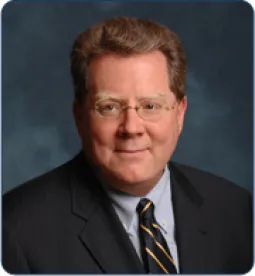A federal district court judge in Maryland gave a clear endorsement of the FCC’s regulation limiting fax broadcasters’ liability under the TCPA. Asher & Simons, P.A. v. J2 Global Canada, Inc., No. JKB-13-0981, 2013 U.S. DIST. LEXIS 148972 (D. Md. Oct. 16, 2013). FCC regulations limit the liability of so-called fax broadcasters (those who transmit faxes for a fee on behalf of others) to those circumstances in which a broadcaster “demonstrates a high degree of involvement in, or actual notice of, the unlawful activity and fails to take steps to prevent such facsimile transmissions.” 47 C.F.R. § 64.1200 (a)(4)(vii). The Canadian affiliate of j2 Global asserted the FCC regulation as an affirmative defense, and the plaintiffs challenged this particular defense by a motion for partial summary judgment. The plaintiffs argued that FCC regulatory authority under the TCPA is limited, and could not be read to include the power to limit liability for any transmission of an unsolicited fax.
Having originally granted plaintiffs’ motion for partial summary judgment, the court on reconsideration deferred to the FCC’s liability limitation under Chevron principles, and endorsed the FCC’s regulation as “reasonable.” In this respect, the court followed the clear majority of courts who have addressed this issue. See Asher, 2013 U.S. Dist. LEXIS 148972, at *16-18 (citing Pasco v. Protus IP Solutions, Inc., 826 F.Supp.2d 825, 841 (D. Md. 2011) (FCC’s fax broadcaster regulations based on a “permissible construction” of the statute); Merchant & Gould, PC v. Premiere Global Services, Inc., 749 F. Supp. 2d 923 (D. Minn. 2010) (deferring to the FCC’s interpretation of the TCPA and holding that the complaint pled “sufficient facts to support a claim that [defendants] were highly involved and not a mere conduit in the unwanted fax transmissions.”); Kopff v. Bataglia, 425 F.Supp.2d 76 (D.D.C. 2006) (FCC’s interpretation of the TCPA due “substantial deference” and finding that plaintiffs’ allegations that defendant was “more than a mere conduit for the faxes they received and . . . had a high degree of involvement in, and actual notice of, the allegedly unlawful activity and nonetheless failed to take steps to prevent it” were sufficient to overcome a motion to dismiss); but see Shelton v. Cyberdata, Inc., 2007 TCPA Rep. 1697 (Mich. Cir. Sept. 24, 2007) (holding that the FCC does not have any authority to prescribe the fax broadcaster exemption because the TCPA only grants it the authority to “implement the requirements of the Act.”) (emphasis in original)). The court thus denied plaintiffs’ motion for partial summary judgment, and made clear that the FCC’s liability limitation for fax broadcasters would govern the case.
This is important news for fax broadcasters who have relied on the FCC’s regulations to establish their standard of liability for unsolicited fax claims under the TCPA. It is also a solid endorsement of the FCC’s regulatory authority the TCPA. Where a fax broadcaster lacks a “high degree of involvement in, or actual notice of” the alleged violation, there will be no liability on the part of the innocent transmitter for the alleged unsolicited fax.



 />i
/>i

